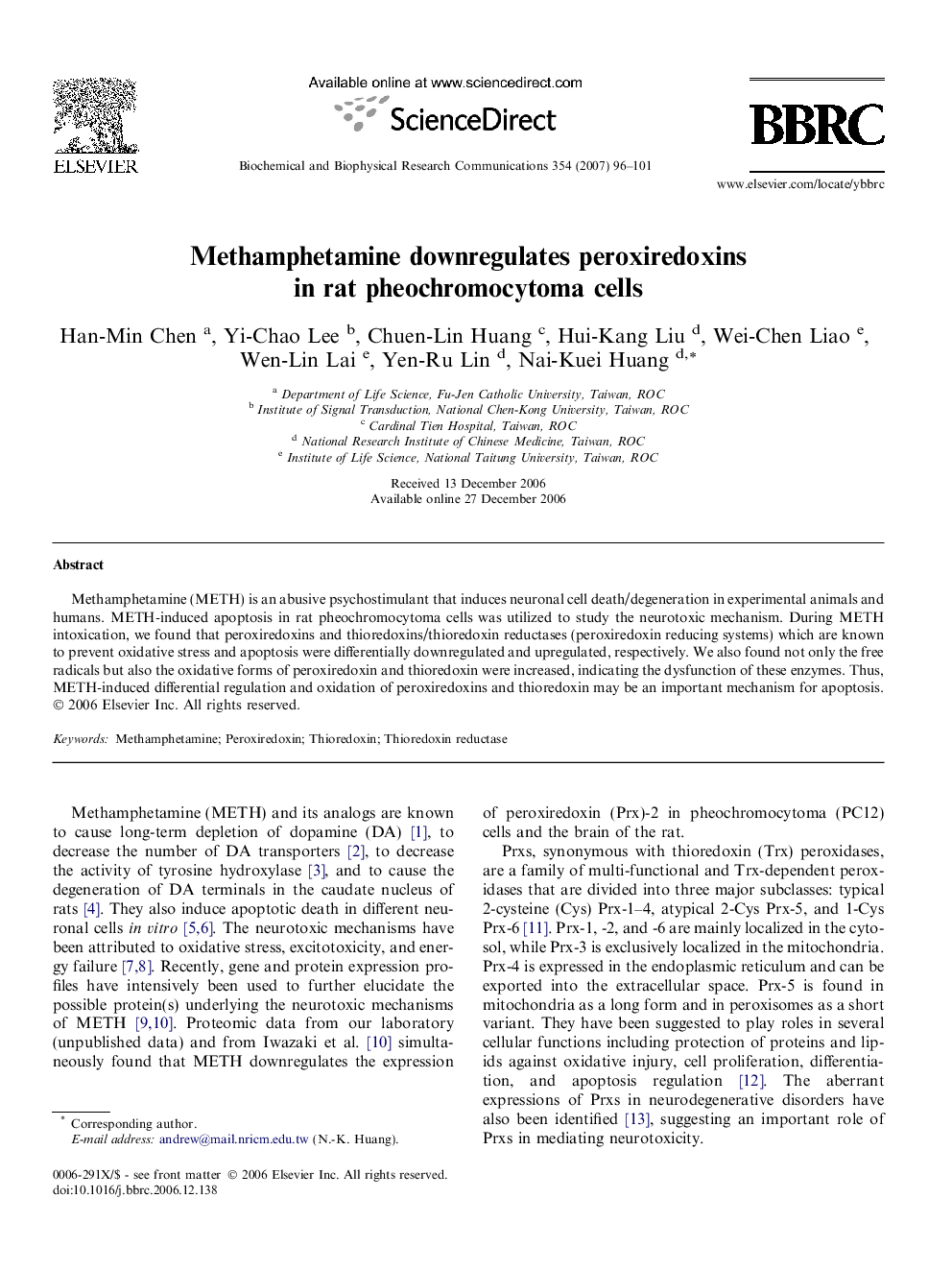| Article ID | Journal | Published Year | Pages | File Type |
|---|---|---|---|---|
| 1939520 | Biochemical and Biophysical Research Communications | 2007 | 6 Pages |
Methamphetamine (METH) is an abusive psychostimulant that induces neuronal cell death/degeneration in experimental animals and humans. METH-induced apoptosis in rat pheochromocytoma cells was utilized to study the neurotoxic mechanism. During METH intoxication, we found that peroxiredoxins and thioredoxins/thioredoxin reductases (peroxiredoxin reducing systems) which are known to prevent oxidative stress and apoptosis were differentially downregulated and upregulated, respectively. We also found not only the free radicals but also the oxidative forms of peroxiredoxin and thioredoxin were increased, indicating the dysfunction of these enzymes. Thus, METH-induced differential regulation and oxidation of peroxiredoxins and thioredoxin may be an important mechanism for apoptosis.
